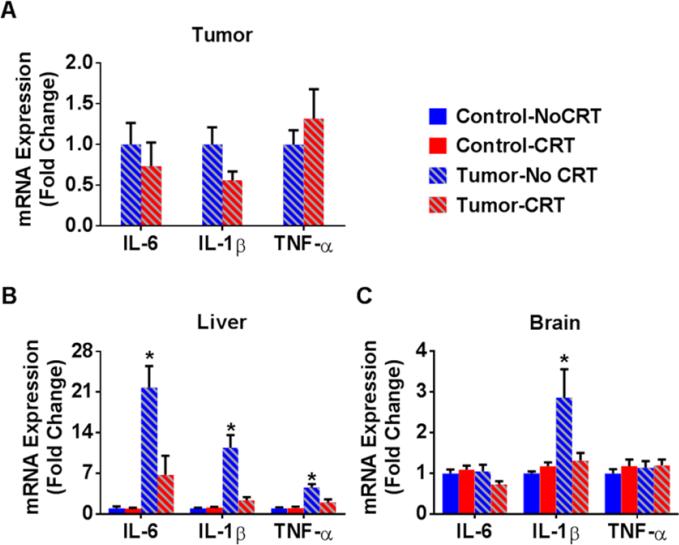Figure 2. Tumor-induced cytokine expression is abrogated by chemoradiation.
Mice were implanted or not with tumors on day 0 and were exposed to chemoradiation (5.28 mg/kg cisplatin + 8 Gy leg irradiation) or sham treatment on day 12, 19, and 26. Tissue was collected on day 27 and was analyzed by RT-PCR for proinflammatory cytokine expression. (A) There were no statistically significant effects of chemoradiation on tumor cytokine expression. (B) There were significant main effects of tumor and chemoradiation on liver cytokines (all ps<0.05) as well a significant tumor by chemoradiation interactions for IL-6, F(1,24)=9.02, p<0.01, IL-1β, F(1,24)=16.89, p<0.001, and TNF-α, F(1,24)=9.89, p<0.005. (C) Within the brain, there was a main effect of tumor, F(1,24)=6.97, p<0.05, and a tumor by chemoradiation interaction, F(1,24)=4.48, p<0.05, on IL-1β mRNA expression. Post hoc analyses show that untreated tumor-bearing mice had significantly higher cytokine mRNA expression. Data are represented as mean fold differences compared to control mice +/− SEM. * p<0.05, n= 7/group

